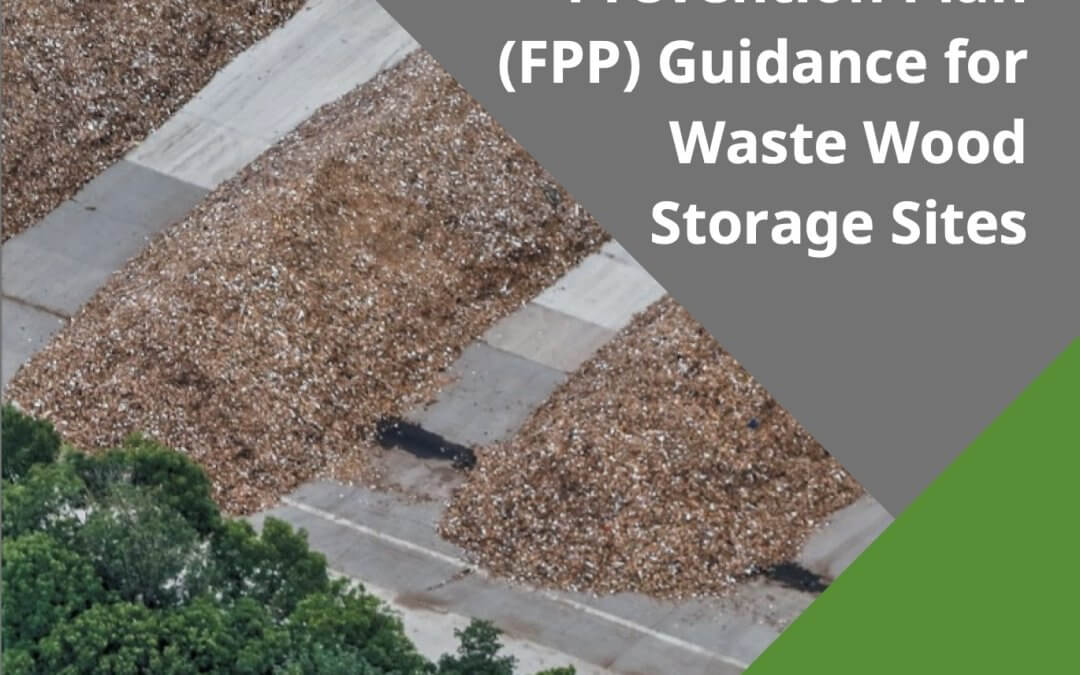The Wood Recycler’s Association (WRA) has today (September 15) launched updated Guidance on Fire Prevention Plans (FPPs) for waste wood storage sites, drawing on the latest best practice in managing fire risk.
The update follows a sharp fall in fires at waste wood sites and an increase in bespoke permits being issued for wood recycling sites which are more flexible than standard FPPs.
Fire Prevention Plans are a requirement of any site operator with an environmental permit that receives combustible waste with the aim of minimising the likelihood of fire.
The updated Guidance – which has been reviewed by the Environment Agency – provides updates to the WRA’s 2020 Fire Prevention Plan Guide and details agreed alternative measures in Fire Prevention Plans for waste wood storage sites since 2019, based on recent trends, experience and learning.
It is hoped that the Guidance will help provide more flexibility on storage which can be a challenge for operators due to the seasonal nature of the waste wood market – with more waste wood produced in the summer and more demand in the winter – while further minimising fire risk.
Vicki Hughes, Technical Lead on the WRA Board, said: “We are delighted to launch this updated Guidance, which reflects our learning over the last 4-5 years. The risk of fires at waste storage sites is now significantly reduced, which is a result of increased professionalism in the industry.
“Obviously each site will have or need a permit and FPP which are site-specific so it is important to note that what works on one site, may not be applicable or work on another. However, by understanding best practice and learning as we go, the aim is to reduce the overall environmental impact of how we operate, whilst also providing first class recycling and recovery solutions.”
The Guidance sets out suggestions with regards to stack heights, storage duration, separation distance, fire detection, suppression systems and fire breaks.
It also offers recommendations things to consider when preparing a new FPP or applying for a permit and should be seen as an aid to operators, regulators and the Fire and Rescue Service to learn from best practices in the sector.
Peter Buckley, Senior Fire Adviser at the Environment Agency, said: “The Environment Agency worked with the WRA on the original sector-specific Fire Prevention Plan Guide. Since the original Guide was developed, technology and practices have changed which allows a more creative approach to developing Fire Prevention Plans. This addition to the original Guide will be a useful reference for site operators and environment officers.”
The updated FPP Guidance can be viewed here.

